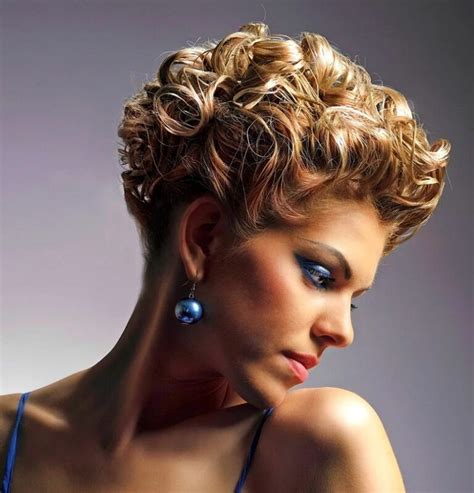Discover the causes of vegan hair loss, nutrient deficiencies’ impact, dietary changes, and supplements to improve vegan hair growth. Expert advice included.
Understanding vegan hair loss
Contents
Understanding vegan hair loss
Many people may believe that a vegan diet can lead to hair loss, but it’s important to understand the truth about this issue. While it is possible to experience hair loss on a vegan diet, it is not solely due to the absence of animal products. There are many factors that can contribute to hair loss on a vegan diet, and understanding these factors is key to finding solutions for maintaining healthy hair.
One of the main reasons for hair loss on a vegan diet is nutrient deficiencies. When individuals switch to a vegan diet, they may not be consuming enough essential nutrients for hair health, such as iron, zinc, protein, and B vitamins. These nutrients are often found in animal products, so it’s important for vegans to find alternative sources in plant-based foods or through supplementation to ensure they are getting an adequate amount of these nutrients.
In addition to nutrient deficiencies, another factor that can impact hair health on a vegan diet is caloric restriction. Some individuals may unintentionally consume fewer calories when transitioning to a vegan diet, which can lead to hair loss. It’s important for vegans to be mindful of their calorie intake and make sure they are consuming enough energy to support their overall health, including the health of their hair.
Overall, it’s important for vegans to be aware of the potential factors that can contribute to hair loss on a vegan diet. By addressing nutrient deficiencies, ensuring an adequate calorie intake, and paying attention to overall health, individuals can maintain healthy hair while following a vegan lifestyle.
Causes of hair loss on a vegan diet
Switching to a vegan diet can have many health benefits, but it can also lead to certain nutrient deficiencies that may contribute to hair loss. One of the main causes of hair loss on a vegan diet is the lack of sufficient protein intake. This is because animal products like meat, eggs, and dairy are the primary sources of protein in most diets, and vegans may not be getting enough protein to support healthy hair growth.
Another common cause of hair loss on a vegan diet is the lack of essential vitamins and minerals that are typically found in animal products. For example, B vitamins like biotin and vitamin B12 are crucial for healthy hair, and they are commonly found in animal products. Vegans may need to take supplements or eat fortified foods to ensure they are getting enough B vitamins to prevent hair loss.
Additionally, iron deficiency is another potential cause of hair loss on a vegan diet. Iron is important for carrying oxygen to the hair follicles, and a lack of iron can lead to weakened and brittle hair. Vegans should focus on consuming plant-based sources of iron such as beans, lentils, and leafy greens, and consider pairing them with vitamin C-rich foods to enhance iron absorption.
Overall, it’s important for vegans to be mindful of their nutrient intake and make conscious efforts to include a variety of plant-based foods that provide essential nutrients for healthy hair. Working with a registered dietitian or nutritionist can also be helpful in creating a well-balanced vegan diet that supports hair health.
Impact of nutrient deficiencies on hair
A vegan diet can provide many health benefits, but it is important to be aware of the potential impact of nutrient deficiencies on hair. Nutrient deficiencies can have a significant impact on the health and appearance of your hair. Without an adequate intake of essential nutrients, your hair may become weak, brittle, and prone to breakage.
One of the most important nutrients for hair health is iron. Iron deficiency can lead to hair loss and even contribute to the development of thin, brittle hair. It is essential for vegans to ensure they are getting enough iron in their diet through plant-based sources such as lentils, chickpeas, and tofu.
Omega-3 fatty acids are another crucial nutrient for hair health. These fatty acids help to nourish the scalp and support hair growth. Vegans can obtain omega-3s from sources such as flaxseeds, chia seeds, and walnuts.
Zinc is also important for maintaining healthy hair, as it plays a key role in the repair and growth of tissues. Vegans can find zinc in foods like pumpkin seeds, cashews, and lentils. Additionally, biotin is a B-vitamin that is important for the maintenance of healthy hair. Biotin can be found in foods such as almonds, sweet potatoes, and spinach.
It is crucial for vegans to be mindful of their nutrient intake and ensure they are consuming a diverse range of plant-based foods to meet their nutritional needs. While it is possible to maintain healthy hair on a vegan diet, it is important to pay attention to the potential impact of nutrient deficiencies and take steps to address them through dietary choices and, if necessary, supplementation.
Dietary changes to improve hair health
When it comes to improving the health of your hair, making dietary changes can be a game-changer. Your hair’s appearance and strength are greatly affected by the nutrients you consume, so it’s important to pay attention to your diet. Eating a well-balanced diet with essential nutrients can promote hair growth and overall hair health.
One important dietary change to make for better hair health is to increase your intake of protein-rich foods. Foods such as lean meats, fish, eggs, and legumes are all excellent sources of protein that can promote hair growth and strengthen hair follicles.
In addition to protein, incorporating healthy fats into your diet is crucial for improving hair health. Foods like avocados, nuts, and seeds are great sources of healthy fats that can help nourish your hair and scalp, leading to healthier and shinier hair.
Vitamins and minerals are also important for hair health. Make sure to include plenty of fruits and vegetables in your diet to get a good dose of vitamins A, C, and E, as well as minerals like zinc and biotin, all of which are essential for strong, healthy hair.
Supplements for vegan hair growth
One of the challenges of maintaining a vegan diet is ensuring you get all the necessary nutrients to support overall health, including hair growth. While a well-balanced plant-based diet can provide many essential vitamins and minerals, there are certain supplements that can help support vegan hair growth.
First and foremost, B vitamin supplements are crucial for vegans looking to promote hair growth. B vitamins, particularly biotin (B7) and niacin (B3), play a key role in maintaining healthy hair and promoting growth. Since these vitamins are commonly found in animal products, vegans may need to consider taking a B complex supplement to ensure they are getting an adequate amount of these essential nutrients.
In addition to B vitamins, vegans can benefit from taking a plant-based omega-3 supplement to support hair growth. Omega-3 fatty acids are known for their anti-inflammatory properties and promoting overall hair health. Flaxseed oil, algae oil, and chia seeds are all excellent sources of plant-based omega-3s that can be easily incorporated into a vegan diet through supplements.
Another important supplement for vegan hair growth is iron. Iron deficiency is a common cause of hair loss, and since plant-based sources of iron are not as easily absorbed by the body as animal sources, vegans may be at a higher risk of deficiency. Taking an iron supplement or consuming iron-rich plant foods alongside vitamin C-rich foods to enhance absorption can help vegans maintain adequate iron levels for healthy hair growth.
Lastly, protein supplements can also be beneficial for promoting hair growth in vegans. While it is possible to get enough protein from a well-planned vegan diet, some individuals may find it challenging to meet their protein needs, especially if they are active or have increased hair growth demands. Protein powders made from pea, hemp, or rice protein can be added to smoothies or used in recipes to ensure adequate protein intake for supporting healthy hair growth.











